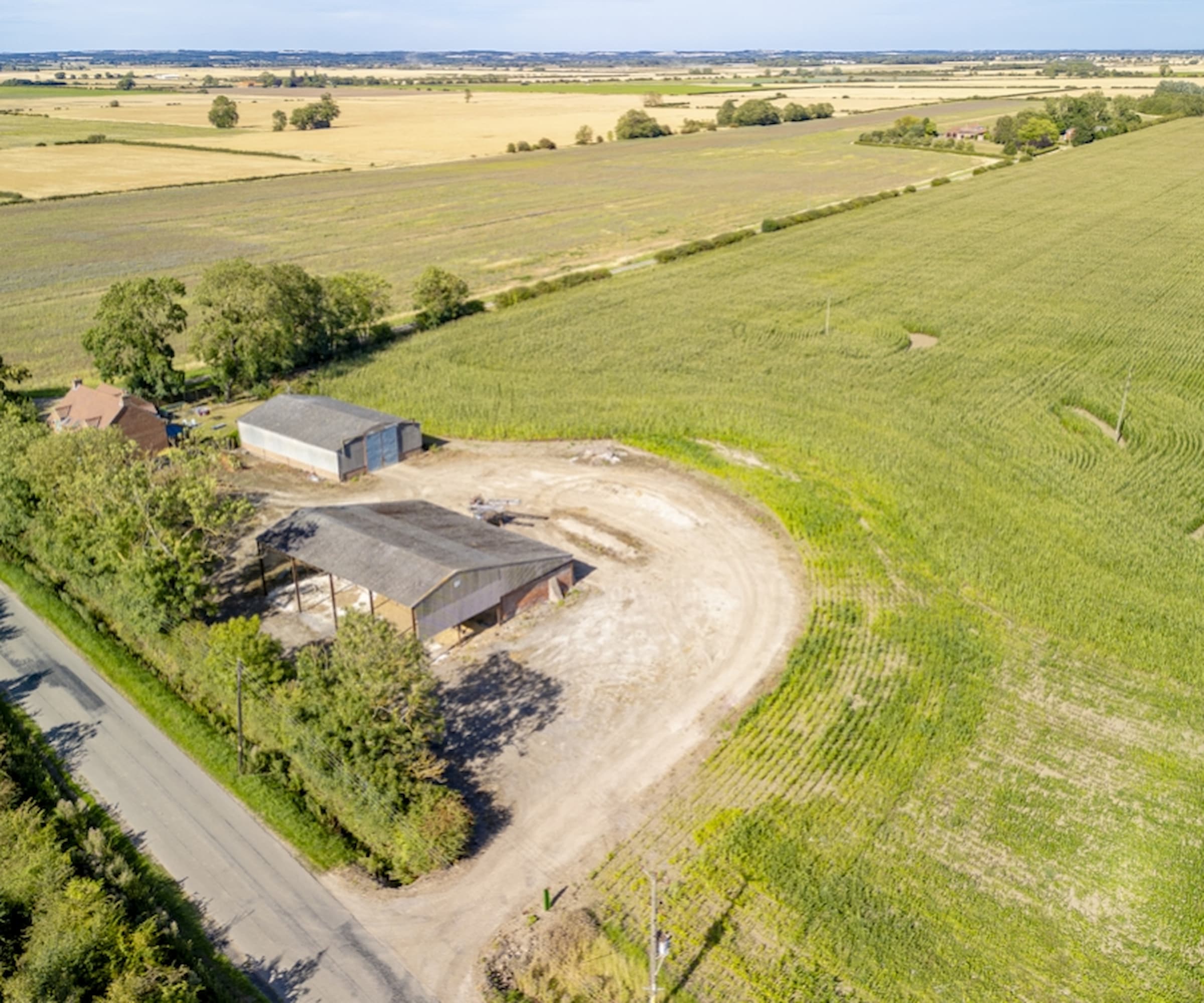Can you get a mortgage for land without planning permission?
Find out if you can secure a land mortgage when planning permission isn’t in place with our guide to the options

Land without planning permission can often be more affordable than a plot with consent to build but if you need to borrow to purchase it, you might wonder if getting a mortgage for land without planning permission is achievable.
There’s a wide choice of lenders available if you’re looking for a mortgage when you’re buying a house. But when it comes to buying land without planning permission you’ll find the situation is markedly different.
To help you decide if buying land without planning permission could be a viable project, we’ve put together all you need to know about the challenges it presents.
Can you get a mortgage on land that doesn’t have planning permission?

Subscribe to Plotfinder.net to access over 15,000 building plots and properties that could become your next project
Getting a mortgage on land that doesn’t already have planning permission can be very difficult, according to Paul Blaking, direct mortgages manager at Suffolk Building Society. “Most lenders are cautious about lending in these circumstances,” he explains.
“Mortgage providers will usually require proof of planning permission before considering your application,” he explains. “However, in some cases (as with self-build lenders like us) they will assess applications with outline planning permission. Borrowers can only proceed to a full mortgage application once full planning permission or class Q is granted. Class Q planning permission allows agricultural buildings, such as barns and stables, to be converted into residential or commercial properties.”
And, with planning permission secured, a self-build mortgage with a high loan to value ratio could be achievable. “Some lenders may offer up to 85 per cent LTV, depending on your profile as a borrower,” says Mark Harris, chief executive of mortgage broker SPF Private Clients.
If you are considering an application for a mortgage on land without planning permission, be mindful of the position it will place you in. “Although it’s not impossible to get a mortgage without any planning permission, it’s likely to be better to wait,” Paul says. “Not only is it risky for the lender, but risky for you too, in case permission is denied.”

With an extensive background in financial services, Paul Blaking has worked for over 12 years at Suffolk Building Society and is the society’s direct mortgages manager.

Mark is chief executive of SPF Private Clients, an award-winning financial services intermediary, and was part of the launch team of the company as Savills Private Finance in May 1997. Originally launching as the financial services arm of Savills, SPF has rapidly grown into one of the market leaders in UK financial services. SPF became part of the Howden Group of companies in 2022.

Are there specialist lenders?
If you’re considering applying for a mortgage for land without planning permission, there are specialist lenders, but be aware of costs and availability.
“Lending on land without planning permission is seen as risky so lenders are likely to charge higher interest rates,” says Paul Blaking. “There are also fewer lenders willing to lend without planning permission. This means there is less incentive for lenders to offer more competitive rates.
“They will also usually offer lower LTV ratios (usually up to a maximum of 50 to 70 per cent) for land without planning permission,” he adds. “You may need a larger deposit to secure the loan. This is why it may be beneficial to wait until planning permission is granted.”
Be sure to consult an appropriate mortgage broker. “Working with a mortgage broker who specialises in land and self-build projects is highly recommended,” says Mark Harris. “They can guide you to the most suitable lenders and help navigate the process efficiently.”
How can you find out if planning permission is likely to be granted?
It’s important to be well informed about how much risk you might be running when considering land without planning permission.
“Engaging with the local planning department can give you an insight into the likelihood of obtaining planning permission, which can help you assess the level of risk,” says Mark Harris.
And bear in mind that you can apply for outline planning permission or full planning permission even if you’re not the owner of a plot of land – although you will need to notify the owner. You’ll also need to pay planning application fees if you take this route, so don’t forget to budget for them.
Are there other options?
If it’s feasible, paying cash for the land and then getting a mortgage is an option for a self-builder. “Once planning is achieved a broker can arrange a self-build mortgage which may allow for a ‘day one’ release against the now consented land value to replenish funds previously used,” says Mark Harris.
Alternatively, if your own property has space, you might consider building a home on a garden plot, providing you can get planning permission. “If you’re lucky enough to already own a plot, then funds can be released against the value of the plot,” says Paul Blaking. “Meaning you can begin the build without needing additional funds available.”
“Lenders are cautious about land without planning permission as the risk is significantly higher, so this really is only an area for experienced developers,” says Mark Harris. Instead, opting for a plot with planning permission, while likely more costly, is a less fraught strategy.

Get the Homebuilding & Renovating Newsletter
Bring your dream home to life with expert advice, how to guides and design inspiration. Sign up for our newsletter and get two free tickets to a Homebuilding & Renovating Show near you.
Sarah is a freelance journalist and editor writing for websites, national newspapers, and magazines. She’s spent most of her journalistic career specialising in homes.
She loves testing the latest home appliances and products, and investigating the benefits, costs and practicalities of home improvement. She is an experienced renovator and is currently remodelling the ground floor of her new home.
She was Executive Editor of Ideal Home and has worked for Your Home and Homes & Ideas. Her work has published by numerous titles, including The Guardian, channel4.com, Houzz, Grand Designs, Homes & Gardens, House Beautiful, Homes & Antiques, Real Homes, The English Home, Period Living, Beautiful Kitchens, Good Homes and Country Homes & Interiors.
